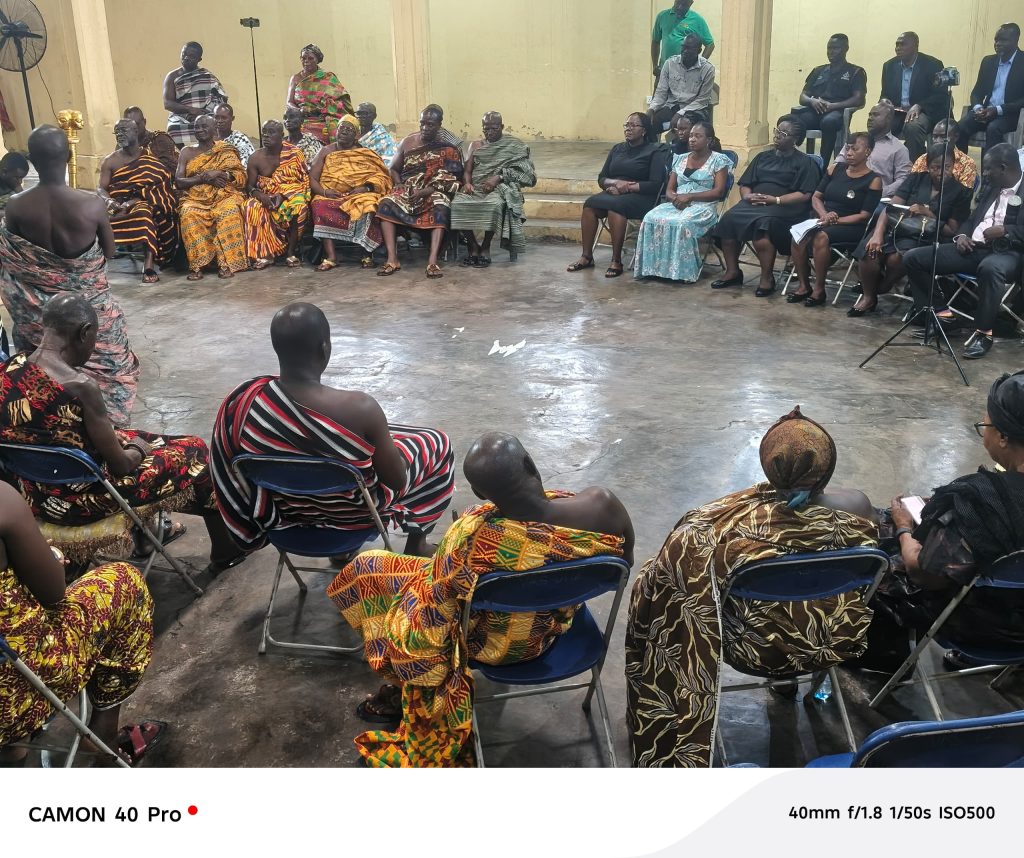
Koforidua, July 18, GNA – The Ghana Judicial Service has stepped up its efforts to encourage the use of Alternative Dispute Resolution (ADR) as a key approach to addressing the large number of cases waiting in the courts.
As part of the awareness initiative held before the ADR week, Justice Angelina Mensah-Homiah, a judge from the Court of Appeal and responsible for overseeing the court-connected ADR, headed a group on Thursday to meet with the New Juaben Traditional Council and Queen Mothers regarding ADR methods.
Speaking to the council in the eastern regional capital, Koforidua, she mentioned that customary arbitration, which has been traditionally used by local leaders, is acknowledged by the ADR Act 2010 (Act 798) as a valid method for resolving conflicts.
"The distinction between traditional arbitration and court-linked mediation lies in the fact that a customary arbitrator issues a decision, whereas the mediator helps the parties reach an agreement," she explained.
She recommended that all traditional arbitration must be carried out in line with the ADR Act 2010, Act 798, emphasizing: "It should be a voluntary process. If an individual does not agree to customary arbitration, the resulting decision may face issues."
As per the law, if both parties pay a small amount within 21 days, it is considered agreement to go to arbitration.
She called on traditional leaders to make sure that customary arbitration stayed voluntary and in line with the law, explaining, "If someone doesn't pay the token within 21 days, it shows they don't want to go through customary arbitration. You can't force them."
"But when both sides pay the token, it signifies agreement, and the decision becomes legally binding," she added.
Justice Mensah-Homiah also warned about the improper use of alternative dispute resolution in situations that are legally non-compromisable, stating, “Issues concerning constitutional interpretation, severe criminal acts such as murder, rape, and abuse, or environmental violations like unauthorized mining (galamsey), cannot be settled via ADR. The legal process must proceed.”
She criticized the growing illegal settlement methods in drug abuse cases, where offenders bribe intermediaries to escape legal consequences. "Matters that need to go to court must be handled according to the law. If they can't be resolved, they can't be resolved."
Emphasizing the pressure on the judicial system, Justice Mensah-Homiah stated that certain courts were overwhelmed with as many as 800 cases each day, and that alternative dispute resolution could offer assistance.
ADR enables the swift resolution of cases, maintains relationships, and reduces costs," she mentioned. "In a single court, there might be 700 to 800 cases. Even if 100 of them are resolved through ADR, it allows the courts to focus on more complicated issues.
She mentioned that ADR was not just a means of achieving justice, but also a protection against the collapse of society. "If issues are postponed in court, individuals might turn to administering justice on their own."
She referred to ADR as a "cornerstone of justice," essential in minimizing legal delays and fostering community cohesion.
"You opt for ADR, and you handle your conflicts. In a month or two, you can return to your work. It helps you save money. It maintains relationships," she emphasized.
Daasebre Kwaku Boateng III, the Omanhene of the New Juaben Traditional Area, praised the Judicial Service for taking the initiative and promised the backing of traditional leaders to promote greater use of ADR.
"There is a requirement for conventional authorities to implement different methods of settling conflicts between individuals, like court-related alternative dispute resolution," he stated.
The awareness session is a component of the Judicial Service's annual ADR Week, scheduled to begin on Monday, July 21, 2025, with the theme "Strengthening the Foundations of Justice Delivery via Alternative Dispute Resolution."
The event will start with a press conference at District Court 'A' in Koforidua, where the Acting Chief Justice Paul Baffoe-Bonnie is set to speak to the media.
Events consist of mass mediation sessions held at 138 ADR-linked courts across the country, media interactions conducted by ADR coordinators, and awareness initiatives aimed at court visitors, judges, magistrates, and mediators, especially in the Eastern Region.
A significant new feature this year is the pre-ADR week initiative, aimed at enhancing overall stakeholder involvement and increasing public awareness about the advantages of ADR in speeding up the administration of justice.
GNA
Edited by D.I. Laary and Christian Akorlie

Posting Komentar